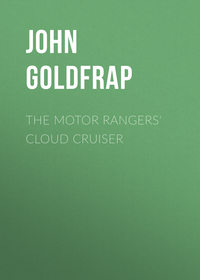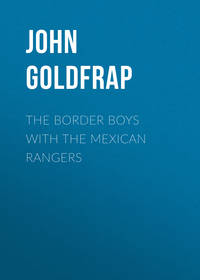 полная версия
полная версияThe Bungalow Boys in the Great Northwest
“And they are going to turn a lot of Chinamen loose ashore?” gasped Tom.
“Well, they won’t turn them loose exactly,” rejoined Mr. Chillingworth, and if it had not been dark Tom would have noticed that he smiled. “Their method, so rumor has it, is to borrow some rancher’s team and wagon and drive the yellow men through the woods to a mining district to the north. Things are run pretty laxly there, and nobody asks questions so long as they get Chinese labor cheap.”
“But doesn’t every Chinaman who comes into the country have to have a certificate bearing his picture?” asked Tom. “Seems to me I’ve read that.”
“Perfectly true,” replied Mr. Chillingworth, “but it’s easy enough for men of Lake’s stripe to fake such certificates. After the men have worked at the mines a while, they leave there and mingle with their countrymen in the Chinatowns of any large Eastern or Western city. If any one asks questions, all they have to do is to show their certificates. As for the pictures, I guess one does for all. Every Chinaman looks pretty much alike.”
“That’s a fact,” agreed Mr. Dacre, “but all this must take a lot of money to engineer. Who provides the funds?”
“Ah, that’s a mystery. I’ve heard that a big syndicate is in it. It must pay tremendously. You see, the Chinamen will pay all the way from two hundred to a thousand dollars to be landed safely in the country. Lake, if he manages things right, can bring in as many as two hundred at a time. You see for yourself what that means – sixty thousand dollars at one fell swoop.”
“Phew!” whistled Mr. Dacre, “no wonder desperate men will take desperate chances for such rewards. But you mentioned an island from which Lake brings the men. Where is it?”
“That’s pure speculation,” rejoined Mr. Chillingworth. “The only reason for presuming that there is an island on which the Chinamen live till they can be run into the country is this: It is not probable that a schooner like Lake’s can run over to China. Her trips, in fact, rarely occupy more than a month or so. But as for the location of the island, I am as much in the dark as you are.”
“Hark!” cried Tom suddenly. “Isn’t that the sound of oars?”
“It is,” agreed Mr. Dacre, after listening a minute. “They’ve got a lantern in the boat, too. See, it is coming this way.”
Sure enough, they could now perceive a light coming over the water, evidently borne in the boat the splash of whose oars they had heard. On through the darkness came the moving light. Presently it stopped not far from the sloop. The occupants of the latter could see now that three men were in the little craft. One, a tall man with a sailor cap on his head, another, a short, thickset fellow, and the third man was undoubtedly a Chinaman. It was too dark to make out features, but the lantern light shone sufficiently on the occupants of the small boat for their general outlines to be apparent.
The Oriental member of the party wore loose flowing garb. On his head was a skull-cap surmounted by a button.
But after their first surprise our friends on the sloop turned their attention from the craft and its occupants to the freight with which the little boat was loaded. So far as they could make out, these were big canvas sacks about five feet or more in length. There seemed to be more than one of them. The boat rode very low in the water, apparently; whatever the freight was, it was fairly heavy.
As the oarsmen ceased their motions and the boat came to a stop, the men in her arose and the two white men laid hold of one of the bundles at either end. They lifted it, and before the party on the sloop had any idea of what they were going to do, they had swung their burden two or three times and then cast it out into the water. It sank with a sullen splash. As it did so, the Chinaman raised his hands above his head and seemed to be uttering some prayer, or invoking some deity.
But a sudden noise in their midst caused the party on the sloop to turn sharply.
For some inexplicable reason the mask-faced Fu was groveling on the deck. His lips were murmuring oriental words in a rapid sing-song. In his voice, and, above all, in his attitude, there was every indication of abject terror.
Mr. Chillingworth stepped over to him and shook him not too roughly by the shoulder.
“Fu, Fu, what’s the trouble?” he exclaimed.
“Oh, Missa Chillingworth, me welly much flaid,” stammered the Mongolian, still evidently in the bonds of fear.
“But why, Fu – why? Is it because of what they are doing in that boat?”
“Yes, Missa Chillingworth. Dey be deadee men in dose sacks. Dey dlop them in the sea for gib dem belial.”
“They are burying them you mean?”
“Yes, missa. De Chinaman he allee same plest. He say players for dem. Plenty bad for Chinaman to see.”
“And for any one else, too, I should think,” commented Mr. Chillingworth. “It is evident enough now what those fellows are up to. Some Chinamen have died during the voyage and they are burying them in this cove. Packed together as they are, it’s surprising more of them are not killed.”
A slight shudder passed through the boys as they heard. There was something uncanny, something awe-inspiring about this night burial in the lonely cove by the light of the lantern.
Presently the last of the grewsome freight of the small boat was consigned to the waves, and she was pulled back to the schooner.
“We must set a good watch to-night,” said Mr. Chillingworth. “It is important to know if those fellows land anybody.”
The others agreed. Accordingly, it fell to Tom and Jack to watch the first part of the night, while the remaining hours were carefully watched through by Mr. Dacre and Mr. Chillingworth. Fu was too badly scared by the sight of the burial of his countrymen to be of much use. It appeared, according to his belief, that if a Chinaman gazed on another’s burial without announcing himself, he would be haunted forever by the ghosts of the buried ones.
The watch was kept faithfully, and carefully, but nothing occurred apparently to mar the silence of the dark hours. Yet, when the first streaks of gray began to show above the pine-clad shoulders of the coast hills, the dim dawn showed them that no schooner was there.
CHAPTER VI.
MR. DACRE SUSTAINS AN ACCIDENT
During breakfast the mysterious vanishing of the schooner was discussed, with what eager interest may be imagined. They could not understand why the noise of her incoming anchor chain had not been observed. Nor yet, why the creak of the blocks and the rattle of the rigging as her sails were hoisted, had not been heard. It was Tom who solved the first part of the puzzle.
Coming on deck after breakfast, the lad found the sun sparkling down on the dancing waters, and flashing brightly on the white-capped wave tops. Looking in the direction in which he was sure the schooner had lain the night before, he perceived a dark object bobbing about on the water. It looked like a barrel. And so, on investigation, it proved to be. When the sloop was sculled alongside by her big sixteen-foot oars, they found that an anchor chain had been made fast to the keg. The schooner had silently slipped her moorings in the night. The fact that the keg was fast to her anchor chain would make it an easy matter, however, for her to pick it up again at her leisure.
“Does that mean that they saw us, do you think?” asked Mr. Dacre.
Mr. Chillingworth shook his head.
“If they had seen us,” he said rather grimly, “I hardly think we should have all been here this morning. At any rate, that is the reputation that Bully Banjo has. He has an unpleasant way of disposing of any one he thinks may have spied on him.”
“I don’t see how in the twentieth century such a rascal can be permitted at large,” said Mr. Dacre angrily. “He ought to be captured and his just deserts dealt out to him.”
“Well,” said Mr. Chillingworth, “the trouble is just this. Most of the ranchers hereabouts are poorish men. The country has not been fully cleared, and their ranches, so far, yield them small profits. This Bully Banjo pays well for the teams he borrows. Generally, when the horses are returned, there’s a twenty-dollar note with them.”
“But the man is engaged in an illegal business,” said Tom.
Again Mr. Chillingworth smiled.
“It’s mighty hard to get the average man to see that smuggling anything, from cigars to Chinamen, is illegal,” he said. “On the contrary, most men appear to have an idea it’s smart to beat Uncle Sam. But,” his voice changed and took on a stern note, “I, for one, am not going to stand for this rascal’s domineering any longer. Some weeks ago I wrote to Washington and informed the Secret Service bureau there exactly what was going on. They promised to investigate, but since then I’ve heard nothing more. You can readily see that it would be folly for me to make a stand alone against this man. Why, he’s capable of swooping down on my ranch and burning it to the ground.”
“That’s true,” mused Mr. Dacre thoughtfully. “I quite see where this Bully Banjo’s power comes in. But – ”
He broke off short. Some instinct made him turn at the moment and he saw that Fu, the Chinaman, had been eagerly drinking in every word that had been said. As he met Mr. Dacre’s eyes, the Mongolian muttered something and dived into the cabin, ostensibly very busy washing dishes.
“You needn’t worry about Fu,” laughed Mr. Chillingworth. “He’s faithful as the day is long.”
“I don’t know,” said Mr. Dacre seriously. “Somehow I never like to trust a Chinaman. They remind me of cats in their mysterious way of moving about you. If that fellow wanted to, he could cause you a lot of trouble now.”
“Ah, but he won’t,” laughed Mr. Chillingworth, “and, in any event, what could he do?”
“Why,” said Mr. Dacre slowly, “he could inform Bully Banjo, for instance, that you have written to Washington and that the Secret Service may start an investigation.”
“Jove! That’s so!” exclaimed the rancher. “But,” he laughed lightly, “there’s no fear of that. Fu is as honest as the day is long. Besides, he is in my debt. I, and some friends of mine, rescued him from a gang of white roughs, who had falsely accused him of a theft, and who were going to string him up.”
“Just the same,” said Mr. Dacre, “I have found it is a good rule to trust a Chinaman just as far as you can see him, and in most cases not so far as that. But, to return to Bully Banjo’s reason for buoying his anchor, it evidently means that he intends to come back here.”
“Yes, and something else,” said Mr. Chillingworth.
“What is that?”
“Why, that he just slipped in here to bury the dead in calm water. That office performed, he has evidently made off to some other point of the coast to land his Chinamen.”
This was admitted to be a plausible explanation.
While it was calm enough in the shelter of the point the loud roaring in the pine tops, and the distant whitecaps showed that outside it was still rough. Too rough for the sloop to attempt the passage, Mr. Chillingworth declared. That being the case, it was decided to leave the sloop in the charge of Fu, and to set out overland for the ranch. When it grew calmer Fu would sail the sloop around to the waters off the ranch.
In accordance with this decision, the sloop was sculled by Fu close in under a ledge of rocks where there was deep water. The boys made the jump ashore with ease. It was then Mr. Dacre’s turn. Although it has been said that it was calm in the cove, there was still enough sea running to make the sloop quite lively, so jumping from her called for some agility. Mr. Dacre essayed the leap just as a particularly big wave came sliding under the little vessel. The consequent lurch upset his calculations and instead of landing cleanly on the rock he lost his balance, and would have fallen back into the water had not Tom seized him. In another instant Jack, too, had his uncle’s arm.
In a minute they had him up on the rock, but instead of standing upright, Mr. Dacre, his face drawn with pain, and dotted with beads of sweat, sank to the ground. It was apparent that he was suffering intense pain.
“Good gracious, Dacre, are you hurt?” asked Mr. Chillingworth, while the alarmed boys also poured out questions.
“It’s – it’s nothing,” said Mr. Dacre, with a brave attempt at a careless smile. “An old fracture of my leg. I think – ”
His head fell back and his lips went white. Had Tom not caught him he would have fallen prone. Mr. Chillingworth was on the rocks in a bound as the lad’s uncle lost his senses under the keen pain.
“Here, I’m a surgeon in a rough way,” he said. “One has to be everything out in this rough country. Let me have a look at that leg.”
With a slash of his penknife, he had Mr. Dacre’s trouser leg ripped open in an instant. He ran an experienced hand over the limb. “Hum,” he said, his face growing serious, “an old fracture – broken again by that fall. Fu, get me the medicine chest out of the cabin.”
The Chinaman, his face as stolid as ever, obeyed. Mr. Chillingworth took from the mahogany box some bandages, and by the time he had done this Mr. Dacre’s eyes were opened again.
“What’s the verdict, Mr. Chillingworth?” he asked pluckily.
“Well, old man,” was the rejoinder, “I don’t know yet if it’s a fracture or just a sprain. I hope it’s the latter, and then we’ll have you on your feet in a few days. The first thing to be done is to get you back on board the sloop. I’ll stay with you while these young men and Fu push on to the ranch and get some remedies of which I will give them a list.”
Mr. Dacre made a wry face.
“Is it as bad as that? I can’t move?” he asked.
“Well, just you try it,” said Mr. Chillingworth, – but one effort was enough for the injured man.
“Well, Chillingworth, you’ve got a lame duck on your hands,” he said.
“Nonsense, we’ll soon have you all right again. Here, boys, you get hold of your uncle’s head. Fu, place a mattress and some blankets on deck there. I’ll get hold of his feet. Don’t move till I say so.”
It was not an easy task to get Mr. Dacre back on board the sloop, but it was accomplished at last without accident. He was then placed on the mattress on deck and lay there stiller than the boys had ever seen his active form.
Mr. Chillingworth dived into the cabin. When he reappeared it was with a penciled list, which he handed to Tom.
“There,” he said, “now that’s done. Just hand that to my wife and she’ll give you the necessary things. By the way, don’t breathe a word to her about Bully Banjo.”
The boys promised not to mention the occurrences of the night. Soon after, Fu was ready. He carried a small flour sack, with what provisions could be spared over his shoulders. It was arranged that they were to get horses at the ranch and ride back to the sloop, using all the speed they could. After bidding good-by to their injured uncle, and Mr. Chillingworth, the little party set out along the trail. Fu’s blue bloused and loose trousered form slipped noiselessly along in front. Behind him toiled the boys. It did not seem more than a few seconds after they had left the sloop that they were plunged into a thick forest. On every side – like the columns of a vast cathedral – shot up the reddish, smooth trunks of the great pines. Far above their dark tops could be caught occasional glimpses of the blue sky. The brush and vegetation were dense almost as in the tropics. There is a great deal of rain in Washington, and the luxuriant growth is the result. Creepers, flowering shrubs, and big ferns were everywhere, walling in the trail with an impenetrable maze of foliage.
Above them they could hear the wind blowing through the dark pines, roaring a deep, musical bass. But down on the trail it was stiflingly hot. The heavy, sweet odor of the pines, rank and resinous was everywhere. They plodded along in silence, always with that blue, silent figure gliding along just ahead. It was curious that as Tom kept his eyes riveted on the noiseless figure that Mr. Dacre’s words should have recurred to him with startling force:
“Trust a Chinaman only as far as you can see him, and in most cases not so far as that.”
CHAPTER VII.
THE TALL CHINAMAN
For an hour or more they kept steadily on. The Chinaman in the lead had nothing to say except to turn his head with an occasional caution to avoid some obstacle in the path. As for the boys, after the first mile, they, too, relapsed into silence. It was rough going, and, although they had been through some pretty hard ground at times, this trail through the Washington forest was more rugged than anything they had hitherto encountered.
“How far did Mr. Chillingworth say it was to the ranch?” asked Jack, after a while.
“About fifteen miles this way,” rejoined Tom. “You see, this trail goes fairly parallel with the coast, but it doesn’t follow all its in and outs. In that way we cut off a good deal of distance.”
“Say that Chinaman is a talkative young party, isn’t he?” laughed Jack, after another interval of silence.
“I guess his sort don’t do much talking as a rule,” rejoined Tom, “but it seems to me that his moodiness dates from the time he saw that funeral last night out there in the cove. According to my way of thinking, he has something on his conscience.”
“Well, if he honestly believes that the ghosts of all those fellows he saw buried are going to haunt him, no wonder he has something on his mind,” chuckled Jack. “I’m going to try to get something out of him, anyhow.”
Suddenly he hailed the Chinaman.
“Hey Fu, what make trail so crooked?”
“Injun makee him longee time ago,” responded the Mongolian. “Him come lock he no movee, him go lound. Allee same Chinee,” he added, “too muchee tlouble getee him out of way. Heap more easty walk lound him.”
“There’s something in that, too, when you come to think of it,” mused Tom. “Anyway, it goes to show the difference between Indians and Chinese and white men.”
“I guess that’s the reason neither the Chinese nor the Indians have ever ‘arrived,’” commented Jack. “It takes a lot longer to go round than to keep bang on a straight course.”
“That’s right,” assented the other lad. “I really believe you are becoming a philosopher, Jack.”
“Like Professor Dingle,” was the laughing answer.
Once more the conversation languished and they plodded steadily on. But it was warmer now – almost unbearably so, down in the windless floor of the forest. From the pine needles a thick pollen-like dust rose that filled mouth and nostrils with an irritating dust. The boys’ mouths grew parched and dry. They would have given a good deal for a drink of clear, sparkling water.
“Say, Fu,” hailed Jack presently, “we find some water pretty soon?”
“Pletty soon,” grunted the Chinaman, who, despite his fragile frame, seemed tireless and entirely devoid of hunger or thirst. However, shortly after noon, when they had reached a spot where a great rock impended above the trail, while below their feet the chasm sloped down to unknown depths, the blue-bloused figure stopped short in its tireless walk and waited for the boys to come up.
“Pletty good spling here,” he said, diving off into the brush with the canteen. “Me catchum watel.”
“All right, catch all you want of it,” cried Jack, flinging himself exhaustedly on a bed of fern at the side of the rough path. The Chinaman was soon back with the water. He lit a fire and skillfully made tea. With a tin cup each of the refreshing stuff, the boys soon felt better. From the bag they lunched on salt beef, crackers and cheese, and dried apricots. As might be expected, by mid-afternoon their thirst was once more raging.
“How far is it to the ranch?” inquired Tom, for the dozenth time, as they pluckily plodded along. Not for worlds would they have let that silent, fatigueless Chinaman have perceived that they were almost worn out.
“Plitty soon we cross canyon. Ranchee him not far then,” was the response.
“Nothing for it but to stick,” muttered Tom grittily. “But, oh, what wouldn’t I give for a drink of water. I’m as dry – as dry – as those dried apricots.”
“Pooh!” retorted Jack. “They were fairly dripping with moisture compared to the way I feel.”
All at once, a few rods farther, a distant rumbling sound down in the canyon, and off to the right, was borne to their ears. Both lads listened a minute and then gave a joyous whoop.
It was water, – a considerable river, apparently. Anyhow, it was real water, no doubt of that. As they listened, they could hear it gurgling and splashing as it dashed along.
“Hi there, Fu!” hailed Jack, adopting the Chinaman’s own lingo. “We go catchum water way down in canyon.”
But for some reason or other the Chinaman did not seem anxious for the lads to do this. He shook his pig-tailed head.
“You waitee,” he advised. “By um bye find plentee welly nicee watel.”
“Well, this water right here is plentee nicee for me,” rejoined Jack. “So here goes.”
Followed by Tom, he plunged off the trail down the steep declivity, clinging to brush and small saplings as he went. Grumbling to himself in a low tone, the Chinaman followed. It was clear that he thought the proceedings foolish in the extreme.
The descent was longer as well as steeper than they had imagined it would be, but every minute the roaring voice of the concealed river or stream grew louder.
All at once, they emerged from a clump of brush, not unlike our eastern alders – almost upon the bank of a fine river. It was a lot bigger than they had expected, and was rushing along with the turbulent velocity characteristic of mountain water. Here and there were black, deep eddies dotted with circling flecks of white, yeasty foam. But the main stream dashed between its steep, rocky banks like a racehorse, flinging spray and spindrift high in the air when it encountered a check. The water was greenish – almost a glassy tint. The boys learned later that this was because it was snow water and came from the high Olympians.
Flinging themselves flat by the side of one of the eddies, they drank greedily.
“Reminds me of what that kid said when he showed his mother a fine spring he had discovered, and the good lady wished to know how to drink out of it,” chuckled Jack, as they paused for breath.
“What was that?” inquired Tom, wiping his wet mouth with the back of a sun-burned hand.
“‘Why, maw,’ said the kid, ‘you just lie on your tummy and drink uphill.’”
“That does pretty nearly describe it for a fact,” agreed Tom. As he spoke, both boys straightened up from their recumbent position. Hardly had they done so and were scrambling to their feet when there came a sudden, sharp crackling of the brush higher up the stream. Before they had time to recover from their surprise, or to even hazard a guess at what the noise might mean, the brush parted and a figure stepped forth.
Both boys uttered a cry of amazement as their eyes fell on the newcomer. He was a Chinaman – tall, grave, and with a face like a parchment mask.
As Fu saw him, he fell on his face and began muttering incoherent noises like those he had given vent to when he cast himself on the deck of the sloop the night before.
The newcomer was the first to speak. He did so in a deep, sonorous voice very unlike the squeaky, jerky mode of utterance of Fu.
“White boys come with me,” he said, in a tone that indicated that he did not expect to be disobeyed.
“Well, of all the nerve,” breathed the astonished Jack to himself. But before he could speak a word aloud, Tom spoke up:
“We are on our way to a ranch,” he said, “and must reach there by sundown. We’ll have to hurry on.”
No change of expression crossed that yellow mask, but the tall Chinaman’s hand slipped into his blouse sleeve, which was loose and flowing. It was done so rapidly that before the boys had fairly noticed the movement a revolver was pointing at them; the sunlight that struck down through the dark-topped pines glinted ominously on its blued barrel.
The Chinaman, in the same level, monotonous voice, repeated his command:
“White boys come with me.”
“Why, confound it all – ” burst out Tom, but somehow the sight of that tall, motionless figure, with the expressionless face staring unblinkingly at them, and the revolver pointed menacingly in their direction, made him break off short.
“Oh, all right, then,” he said. “I guess we’ll have to. You’ve got the drop on us. But if there were any authorities near, you’d hear of this.”









